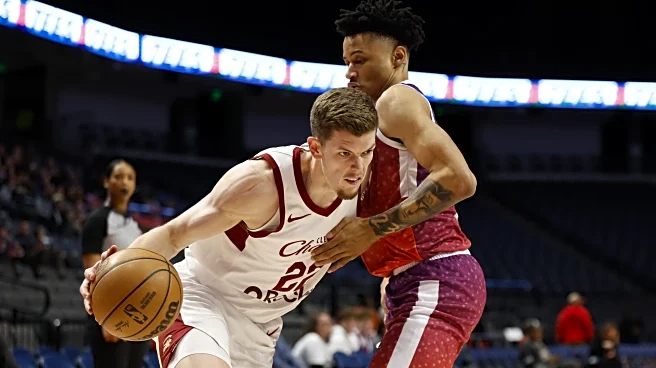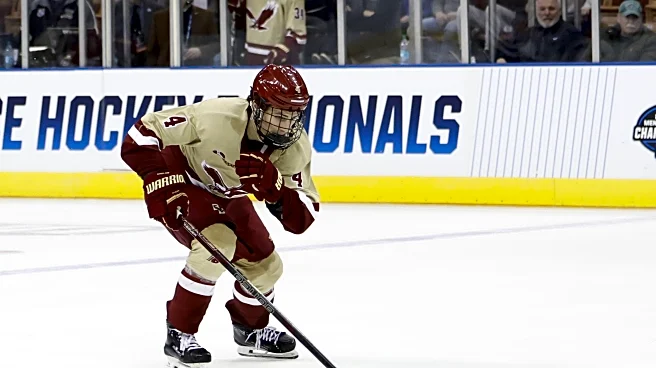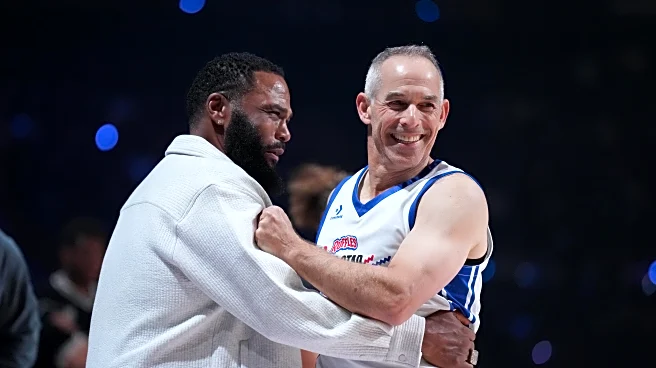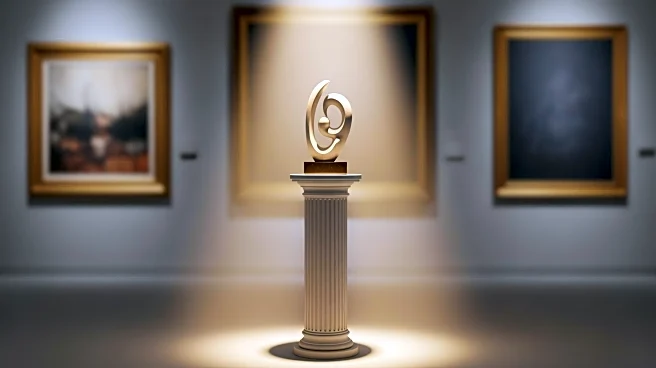
Many fans will be aware that the first £1,000 transfer was Sunderland centre-forward/inside-right Alf Common from the Lads to Middlesbrough in February 1905.
The sale of Common, who was the subject of the first
£500-plus fee when we bought him back from Sheffield United in 1904 - we had sold him to the Blades for £325 in 1901 - took many of the headlines at this time. Had the sports hacks cast an eye to Sunderland’s left-sided attack, they might have been able to predict the beginnings of the career of the prodigious inside-left/left-winger George Holley.
For all it was a record fee, it has to be said that Common’s career with Sunderland was modest to say the least, with 12 goals in 43 appearances. In contrast, Holley’s departure to Brighton for a £200 fee, on this day in 1919 after a Lads career of 315 games and a remarkable 157 goals, would possibly have had the online communities in veritable meltdown had they been in existence then.
The departure of George Holley to Brighton and Hove Albion brought the curtain down on a remarkable playing career with Sunderland. His goals-per-game ratio was phenomenal when you consider he was not a centre-forward. His game, though, was not just about goals!
George Holley was born in Seaham Harbour on the 20th of November 1885. His football grounding was spent at Seaham Athletic, then Seaham Villa, before signing for Seaham White Star at the age of seventeen in 1903.
In November 1904 Sunderland came calling for his signature, having been alerted by his goals and ability to create goals for his team-mates.
/cdn.vox-cdn.com/uploads/chorus_asset/file/26057294/unnamed.jpg) Ryehill Football
Ryehill FootballHis performances for the reserves quickly earned him a debut in the first team and on the 27th of December 1904, aged nineteen, he made a goalscoring debut in a 1-1 draw at Sheffield Wednesday.
He followed this up in Sunderland’s very next game at home to Preston North End. The three-two victory saw the goalscoring birth of a famous left-sided partnership, with Holley scoring one and Arthur Bridgett scoring two of the goals.
This partnership would go on to be the scourge of many a defence for the best part of eight seasons.
Bridgett and Holley would also feature famously for England together as Holley’s first four caps and Bridgett’s last four appearances would see them rattle in five goals between them.
George Holley played ten times for his country, scoring eight goals.
His international debut on 15th March 1909 against Wales saw him score a goal against his very good friend and Sunderland team-mate Leigh Roose, goalkeeper for Wales.
George Holley was top goalscorer for Sunderland in five separate seasons between 1904/05 and 1918/19. His goal tally of 157 goals includes nine hat-tricks and two four-goal hauls and places him fourth on the list of our all-time top scorers behind Bobby Gurney, Charlie Buchan and Dave Halliday.
Seaham is the home of two forwards who scored hat-tricks against Newcastle. Gary Rowell famously did this on February 24th 1979 and George Holley scored three goals in the 9-1 victory against the champions that year on December 5th 1908, (with Arthur Bridgett scoring two, Billy Hogg also getting three and Jackie Mordue scoring one).
In January 1908 the remarkable and eccentric goalkeeper Leigh Roose joined Sunderland. (If this is a new name to you, it is well worth catching up with this lad’s story, both fantastic and poignant in equal measure). Roose and Holley were to become great friends as well as very good footballers for Sunderland AFC.
/cdn.vox-cdn.com/uploads/chorus_asset/file/26057295/12300.jpg)
In April 1911 a twenty-year-old inside-right and part-time centre-forward from London would join Sunderland, who would go on to form one of the most feared forward lines in football up to that point in time. Charlie Buchan, George Holley, Arthur Bridgett and Jackie Mordue trotting out and lining up against your team would have been a formidable prospect in 1911/12.
In 1912/13, eleven years after Sunderland last won the league, they did it again in style. Going toe to toe with a great Aston Villa team for most of the season, the Lads would take the title by four points from the Midlanders. George Holley made thirty league appearances in that glorious season, scoring twelve goals to help the Lads to the title.
This could have been an even better season, as Sunderland fought and played their way to the FA Cup Final, with Holley featuring in every round and replay, including a three-game marathon against Newcastle. George scored five goals in the cup campaign, including two against Newcastle.
The final was played at Crystal Palace in front of a crowd of 120,000-plus fans. With a couple of injury concerns, including George (and no substitutions allowed at this time), manager Bob Kyle took a risk and played Holley. It backfired and Sunderland played the game with virtually ten men. The team they had pipped to the league title, Aston Villa, denied them the double, as they won the game 1-0.
Though he probably did not know it at the time, George Holley’s last league game proper was in the 1914/15 season. It was an injury-strewn campaign for Holley, he made only seven appearances in the league, scoring two goals and played his last match in a three-nil home defeat against Everton on the sixth of April 1915.
Of course, by this point the ‘Great War’ had commenced and there was a real dilemma/conflict for players as they watched many young men enlist and go off to fight.
Charlie Buchan was just one of the players to enlist.
Sunderland lost nine players in that conflict - Jack Huggins, James Chalmers, John Shaw, Thomas Rowlands, Albert Milton, Sandy McAllister, Sammy Hartnett and Alex Barrie.
George Holley sadly lost his very good friend Leigh Roose (awarded the Military Medal, killed in action on the Somme 07/10/1916).
Sunderland effectively stopped playing from 1915 to 1918. Many of the players who were not away fighting guested for other teams and played in charity and fundraising for the war effort games. Holley was the scorer for Sunderland against Newcastle (again) in one of these matches in a 1-1 draw in May 1916 to raise money for military charities. On May 4th 1918, Holley was a scorer along with two goals from Charlie Buchan in a 3-1 victory against Newcastle in a match to raise money for the National War Fund. George also guested for Fulham during this period.
With the war ending on 11th November 1918, a Victory League was set up in the North East involving eight teams from the region - Middlesbrough, South Shields, Scotswood, Newcastle United, Darlington Forge Albion, Hartlepools United, Durham City and Sunderland. Holley played twenty games for Sunderland, scoring four goals. His last game was a friendly against Third Lanark on the 26th April 1919.
In July 1919 George signed for Brighton in a £200 deal, where he would finish his playing career in 1921. He returned to Sunderland as a coach in July 1921, a move welcomed in the local press. However, he would leave for pastures new in 1922, spending the best part of a decade with Wolves as a coach and then moving to Barnsley for several years in the same role.
George Holley died comparatively young, aged fifty-six, after a six-year illness in August 1942.
The Northern Echo responded to the news of his death at the time, saying, “Probably no other Sunderland player of his day is remembered by football enthusiasts of Roker Park with such feelings of attachment as George Holley. He was a product of Seaham White Star and he and Arthur Bridgett became one of the most famed and dangerous left wings in the country.”
Argus in the Echo went further:
So far as I am concerned, I class George Holley as the best forward Sunderland has ever possessed this century. I will simply say George was a shining star.
The final words on George Holley I am going to leave to another of our outstanding legends, Charlie Buchan, who played with him from 1911. In his autobiography ‘A Lifetime in Football’ published in 1955, Buchan said:
Several times I stood spellbound on the field of play watching Holley bewilder the opposition. After one game manager Bob Kyle said to me as I went to draw my weekly wage packet, “Do you think you have earned it?”, “No,” I replied, “but I think George has earned it for all of us.”
There was another occasion when I scored five goals against Kenneth Campbell, the Scottish international keeper playing for Liverpool. Four of these I just touched into the net. Holley had beaten the defence and even drawn Campbell out of position before giving me the goals on a plate.
More from rokerreport.sbnation.com:
- Roundup: Sunderland 'Stranded' In Southampton; Moyes Bemoans Bad Luck & Watmore Claims Unity
- As Yet Another Defeat Blends In With All The Others, Questions About Our Future Still Remain
- The Relegations: #2 - 1969-70
- BCA: The Magnificent Twenty Seven
- Fan Focus: The Ugly Inside Talk Saints v SAFC
- Is Ellis Ready To Embrace The Drop?
- PLP: Can Chelsea Or Liverpool Win The League?












